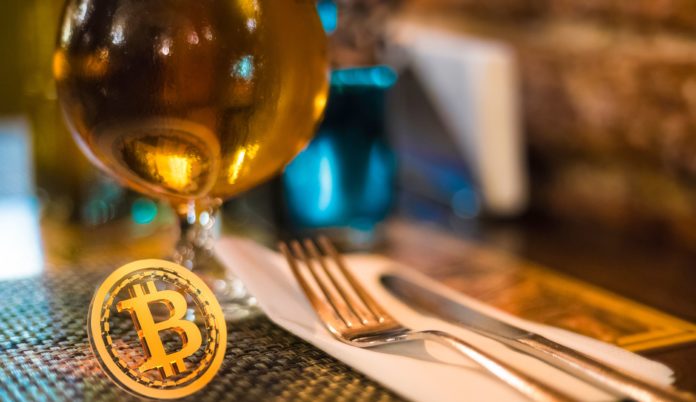by Arnold Waldstein
This question is really close to my heart.
It combines two of my core passions–building community and brands on top of emerging technology platforms, and how we as a culture support artisanal endeavors, especially the natural side of the wine world.
The web has been critical for creating community around the hundreds of small winemakers from every corner of the globe, building a market for them in thousands of retail shops and wine bars. But as a way to sell wine online, it is still very much unrealized and unproven.
But the blockchain may be different, with a bolder and deeper promise.
We are still very early, and most of the few projects in process, are around replumbing the supply chain in an attempt to verify and guarantee a bottle’s origin and provide a transparent view of the source and characteristics of how that bottle is made.
These are interesting as proof points, but pale in comparison to larger, more seminal challenges for the segment, like the rapid industrialization of unique vineyard land or economic issues for small producers who sell into the three-tier distribution system in the states.
I have a thesis, more of a vision, that when you look for native uses of the blockchain and crypto economics within the artisanal and natural wine world, there is a real possibility of tokenizing the process and the supply chain itself, inclusive of community participation.
Building a circular economy that provides capitalization for the vineyards through fractional ownership of the land, tying the community to tangible assets like a bottle of wine, and a way to wire these pieces together in a decentralized marketplace. Self-defining and supporting, with ownership, with utility, with loyalty systems, with currencies trading on exchanges.
With as well, a bridge that connects not just community to one small producer, but interlocking communities as a market connecting through a platform that crosses many producers, cross different locations across a broad range of supporting consumers and micro-investors.
My premise is that there is way to rethink the incentives of the artisanal markets themselves, for wine and other adjacent agricultural luxury goods, that is natural to the possibilities and promise of crypto economies.
I’ve found just one live wine project that touches my thesis, the OpenVino ICO, a model to support the Costa Flores Winery in Argentina.
The core premise is that at each harvest there is an ICO, issuing a token for every bottle that will be produced. That token is tradable on issuance and can be exchanged for the bottle on which it is pegged three years after harvest, when bottled and sellable.
Mike Barrow, the founder and winemaker, has taken a big swing at creating a market experiment. While there are a ton of unanswerable questions complicated by distribution scenarios, he just did it, and for that I really applaud him. And as well, thank him for his time chatting with me.
I believe as well, that there is a broader and culturally-significant play that will bridge the scalability and market-making potential of crypto and the blockchain, with real world, non-fungible agricultural products that are smaller scale by nature and reliant on increasingly scarce plots of land across the globe.
That there is a large-scale economic and cultural win around a mix of fractional ownership of the land itself, with tokens pegged to a real world products. And an annuity tied to the actual annual value of the products themselves.
This is truly virgin tokenomics and an unproven thesis about a different world that is nascent at best.
To a structure where the network strength is not tied to one product community but to a segment itself with interlocking communities that drives the value as a whole.
This gets me up early and inspired.
For the wine world certainly that I love.
As well, for an array of other agriculturally unique industries that need community economies to keep them viable, protect special pieces of land and indigenous varieties, ageless social structures and make a generational transfer of knowledge not only possible, but economic.
There is just something wonderfully visceral and appealing about taking the power of this technology, the unstoppable momentum that communities of belief can drive, to create a self-supporting economy that we all can participate in.
Something we can hold in our hands, uncork, drink and enjoy with friends, and potentially change the status quo of this important part of our world at the same time.
Please share projects in the wine and agricultural luxury product markets that I should know about.
If you are an expert that can help put some detail into this dream or a passionate enthusiast with a creative idea, share in the comments below, in our Telegram channel CryptoVino.




